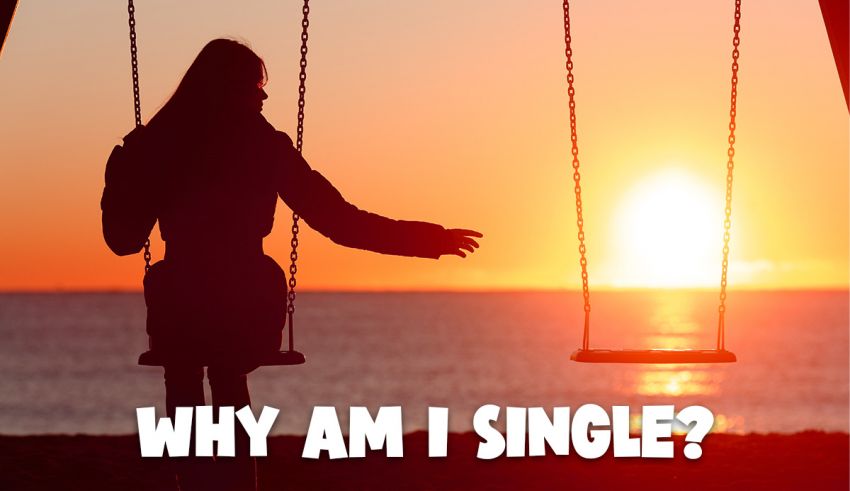The phrase “why I’m single” has become a prevalent search on Google, reflecting a universal curiosity about relationships and personal circumstances. While Google search trends provide a snapshot of common questions and societal attitudes, real-life insights add depth, helping individuals understand and accept their singleness while preparing for future connections. This article merges Google trend data with psychological and sociological perspectives to answer the question, “Why am I single?” thoughtfully and empowering you to transform singleness into a meaningful journey.
What Google Trends Tell Us About Singleness
Google search patterns reveal when and how often people inquire about their singleness. Analysis shows spikes around specific periods such as holidays (Valentine’s Day, Christmas) and the start of the year—times typically associated with relationships and new beginnings. Searches like “why am I single after 30” or “why am I single if I’m attractive” indicate common concerns related to age expectations and self-worth.
Geographically, the search volume varies, but the underlying themes of loneliness, self-improvement, and curiosity about love are global. Google’s autocomplete data provides important clues about what people really want to understand:
-
“Why am I single if I’m nice?”
-
“Why am I single and happy?”
-
“Why am I single but want a relationship?”
These searches highlight diverse emotional experiences and indicate that singleness involves complex psychological layers beyond just the fact of being unattached.
Real-Life Insights on Why People Are Single
While Google can tell us what people ask, real life reveals why. Experts in psychology and relationship counseling identify several key reasons people remain single at various points:
1. Personal Growth and Self-Discovery
For many, singleness is an essential time for personal growth. Real-life stories show that people often choose to stay single to focus on self-improvement, career development, or healing from past emotional wounds. This phase of self-focus ensures they enter future relationships as their best selves.
2. Emotional Barriers and Fear
Emotional wounds from past relationships or fear of vulnerability frequently appear as barriers. People who have been hurt may unconsciously maintain distance to avoid getting hurt again. Understanding and working through these fears is essential for forming lasting connections.
3. Social and Cultural Expectations
Societal pressure about when to marry or find a partner can create confusion and stress. Real-life insights show that rejecting these pressures and setting individual goals leads to healthier, happier relationship outcomes.
4. Compatibility Challenges
Modern dating can be complicated by mismatched expectations and the abundance of choices. People report frustration with casual dating culture or online dating’s paradox of choice. Finding genuine compatibility often requires time, patience, and clear priorities.
5. Self-Respect and Standards
Many singles wait because they refuse to compromise on essential values and standards. Respecting oneself means choosing partners wisely, rather than settling, which ultimately leads to better relationship satisfaction.
Combining Google Trends and Real-Life Wisdom
Using Google search trends as a mirror to societal moods and supplementing that with real-life psychology creates a comprehensive understanding of singleness. Instead of viewing singleness as a problem, people are encouraged to see it as a vital opportunity for growth and reflection.
Practical Steps to Navigate Singleness
-
Embrace Self-Reflection: Regularly assess what you want and need in a relationship. Journaling or therapy can help clarify values.
-
Boost Emotional Health: Practice mindfulness, meditation, or counseling to heal past wounds and reduce fear of intimacy.
-
Set Realistic Relationship Goals: Understand what type of partner and relationship aligns with your lifestyle and values.
-
Expand Social Opportunities: Join clubs, groups or online platforms that encourage meaningful connections rather than just casual dating.
-
Celebrate Singleness: Recognize this life phase as valuable and enriching, not as a deficiency or failure.
High Authority Resource for Emotional Well-Being
For anyone looking for trusted advice on emotional health and relationships, the National Institute of Mental Health (NIMH) offers an excellent repository of research-based information and tips on managing loneliness, building self-esteem, and fostering healthy relationships (NIMH – Relationships and Mental Health). This authoritative source is a great companion in your journey toward understanding singleness and love.
Read More: What Google Reveals About Why I’m Single (And How to Change It)
Conclusion
The question “why I’m single,” as reflected through Google trends and real-life accounts, reveals a spectrum of emotions, fears, and hopes shared by millions globally. Singleness is a multifaceted condition shaped by personal growth, emotional readiness, social context, and cultural factors. By appreciating both the digital pulse and real-world wisdom, individuals can transform their singleness into a purposeful time of preparation and self-discovery. Remember, being single is not a flaw but a meaningful chapter on the path toward lasting, fulfilling relationships.








[…] Read More: Why I’m Single: Google Trends and Real-Life Insights […]